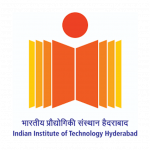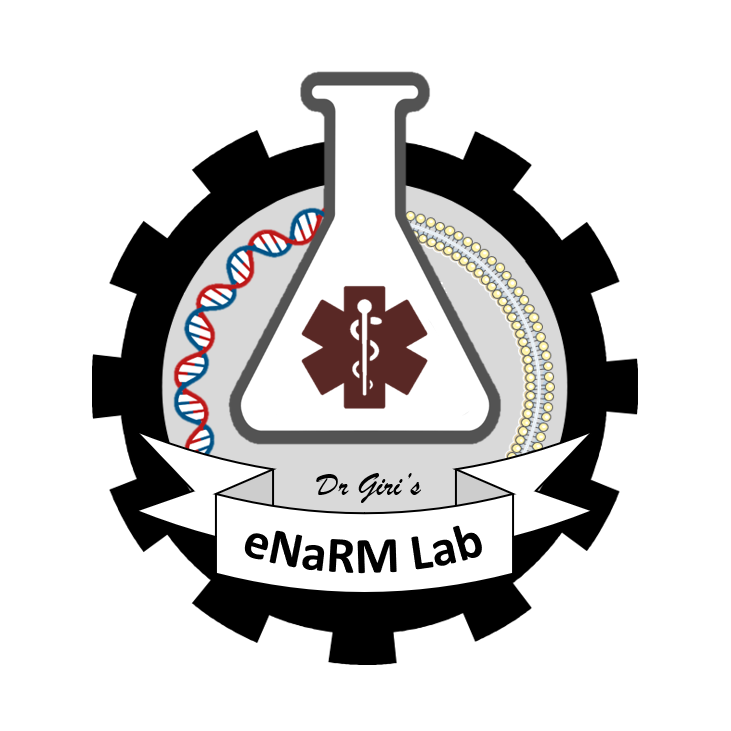Engineering Nanomaterials and Regenerative Medicine Lab (eNaRM Lab)
Nanoparticle Characterization
Zeta Sizer
It is used to measure the particle size and surface charge of dispersed systems from sub-nanometer to several micrometers in diameter, using the technique of Dynamic Light Scattering (DLS).
Model: Malvern Nano ZS
Nature of Sample: Colloidal nanoparticles dispersed in an appropriate solvent system
Type of Data/Output: Average particle size, polydispersity index, surface charge, volume/size number distribution
Charges:
- For IIT-H Users: XXX/- per sample
- For External Academic Institutes: XXX/- per sample
- For Industries: XXX/- per sample

Nanoparticle Tracking Analyzer
It allows rapid detection, visualization, and automated analysis of particle concentration, particle size (from 10 nm to 1 µm) and aggregation state.
Model: Malvern NanoSight NS300
Nature of Sample: Colloidal nanoparticles or protein-based system dispersed in an appropriate solvent system
Type of Data/Output: Particle size and distribution, particle concentration analysis, protein aggregation analysis, particle visualization (imaging and short video)
Charges:
- For IIT-H Users: XXX/- per sample
- For External Academic Institutes: XXX/- per sample
- For Industries: XXX/- per sample
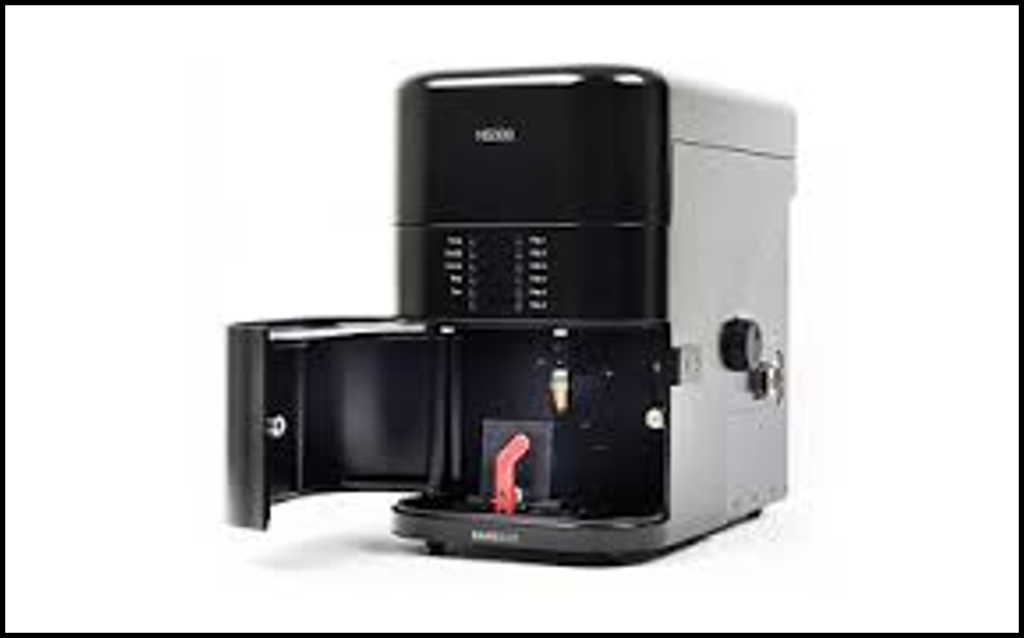
Microscopy & Imaging
Cryo Scanning Electron Microscopy (Cryo-SEM)
The SEM facility in the eNaRM Lab is outfitted with a cryogenic transfer system and stage can be used to evaluate hydrated samples without the need for drying, making it an ideal imaging tool for volatile or beam-sensitive samples in the areas of biomedical, life, food, and polymer sciences. Quarom technologies is partnering with the JOEL for high-stability SEM cold stage and state-of-the-art cold magnetron coating technology, together with a high vacuum, low contamination cryo-preparation chamber for the research done in conjunction with this microscope. This combination allows very high imaging quality, typically to 5nm resolution in a Field Emission SEM.
Model: JEOL JSM-760F Plus
Nature of Sample:
- For CRYO-SEM: Biological Samples, Liquid Samples, Gels (Viscous fluid)
- For SEM: Powder (Microparticles, Nanoparticles), Scaffolds, Thin films
Modes:
- SEI (Secondary electron) mode- To get information about the topography of the sample’s surface.
- BSE (Backscattered electron) mode – To get information on crystallography, topography, and the magnetic field of the sample
Type of Data/Output: Multiple magnification high-resolution Images (25 X – 1 M X)
Charges:
- For IIT-H Users: XXX/- per sample
- For External Academic Institutes: XXX/- per sample
- For Industries: XXX/- per sample

Fluorescent Microscope
It uses fluorescence and phosphorescence (instead of/in addition to reflection and absorption) to visualize the dynamics of tissue, cells, individual organelles, and macromolecular assemblies inside the cell. It is equipped with triple band fluorescence filters: DAPI, FITC and TRITC. The objectives are of various magnification: 4x, 10x, 20x, 40x and 100x. To capture the image, it is provided with Q-imaging monochromatic camera and ocular imaging software.
Model: Olympus IX73
Nature of Sample: Cells tagged with antibody or fluorescent molecule
Type of Data/Output: Bright field images, fluorescent images
Charges:
- For IIT-H Users: XXX/- per sample
- For External Academic Institutes: XXX/- per sample
- For Industries: XXX/- per sample

Optical Spectroscopy
UV-Visible Spectrophotometer
It measures the amount of discrete wavelengths of UV or visible light that are absorbed by or transmitted through a sample in comparison to a reference or blank sample.
Model: Jasco V-750
Nature of Sample: Solids dispersed in an appropriate solvent, Solution of liquids
Type of Data/Output: Qualitative as well as quantitative analysis of chemical compounds, DNA or RNA analysis, Structural changes in protein, and Protein analysis
Charges:
- For IIT-H Users: Full Spectra XXX/- per sample
- For External Academic Institutes: Full Spectra XXX/- per sample
- For Industries: Full Spectra XXX/- per sample

Multimode Microplate Reader
This system measures absorbance, fluorescence, and luminescence. In addition, the iD5 reader measures Telomere Restriction Fragment (TRF) and Fluorescence Polarization (FP) and can be expanded to include Time-Resolved Fluorescence Energy Transfer (TR-FRET), Homogeneous Time-Resolved Fluorescence (HTRF), Bioluminescence Resonance Energy Transfer (BRET), dual luciferase reporter assays with injectors, and western blot detection.
Model: Molecular Devices SpectraMax ID-5
Nature of Sample: Absorbance, DNA/RNA Quantitation, Fluorescence, Fluorescence Polarization (FP), Luminescence, Microbiology and Contaminant, Western blotting
Type of Data/Output: MTT assay, MIC, ELISA, Cellular Signaling, Protein Detection, Quantitation and Analysis, Reporter Gene Assay, TRF, TR-FRET & HTRF
Charges:
- For IIT-H Users: XXX/- per sample
- For External Academic Institutes: XXX/- per sample
- For Industries: XXX/- per sample

Microvolume Spectrophotometer
BioDrop is used to accurately quantify microliter volumes of nucleic acids and proteins like any UV-Vis spectrophotometer. BioDrop offers flexibility with different micro-volume measurement platforms including the revolutionary BioDrop CUVETTE and a unique in-built sample port with a detection limit of 10 ng/µL – or both in one instrument. BioDrop pioneers in solving the sample conservation issue by making use of fiber optic technology and surface tension properties.
Model: Biochrom BioDrop Duo+
Nature of Sample: DNA, RNA, oligos and proteins
Type of Data/Output: Nucleic acid and protein estimation (sample port/cuvette detection), absorbance measurements for varied samples (cuvette only).
Charges:
- For IIT-H Users: XXX/- per sample
- For External Academic Institutes: XXX/- per sample
- For Industries: XXX/- per sample
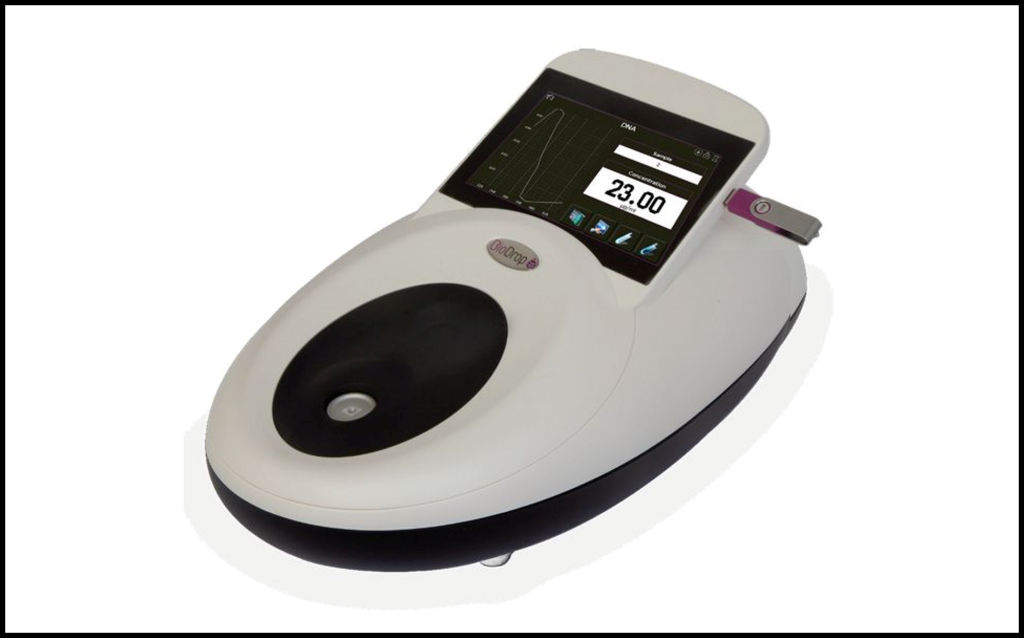
Other Facilities
High Performance Liquid Chromatography
HPLC is a form of column chromatography that pumps a sample mixture or analyte in a solvent (known as the mobile phase) at high pressure through a column with chromatographic packing material (stationary phase). It can separate, and identify compounds that are present in any sample that can be dissolved in a liquid in trace concentrations as low as parts per trillion.
Model: Agilent 1260 Infinity II LC
Nature of Sample: Solution of analyte in an appropriate solvent
Type of Data/Output: Qualitative as well as quantitative determination of chemicals, Quantitative determination of plasma levels of drugs and their metabolites, Release profile of drugs from nanoparticles, Immunoassay for detecting protein binding.
Charges:
- For IIT-H Users: XXX/- per sample
- For External Academic Institutes: XXX/- per sample
- For Industries: XXX/- per sample

Lyophilizer
It executes a water removal process typically used to preserve perishable materials, to extend shelf life or make the material more convenient for transport. Lyophilizers work by freezing the material, then reducing the pressure and adding heat to allow the frozen water in the material to sublimate.
Model: Labconco FreeZone 4.5 Liter Benchtop Freeze Dry System
Nature of Sample: Pharmaceutical/biological samples frozen in an appropriate solvent. Suitable for heat-sensitive samples.
Type of Data/Output: Dehydrated solid concentrate of sample
Charges:
- For IIT-H Users: XXX/- per sample
- For External Academic Institutes: XXX/- per sample
- For Industries: XXX/- per sample

Flow Cytometer
The Flow Cytometry facility is used to measure the multi-parameters which are expressed by single, multiple cells or particles on the basis of differences in their light scattering and fluorescence properties. The equipment is used to analyze cell surface protein expressions, intracellular nanoparticle uptake, cell cycle sample acquisition, apoptosis detection, etc.
Model: BD FACSCelesta (by Becton Dickinson Biosciences)
Compatible Lasers: Violet (405 nm), Blue (488 nm) and 561-Yellow/Green (561 nm).
Compatible Dyes: BV421/V450/Pacific Blue, BV510, BV650, BV711, BB515/FITC/Alexa Fluor 488, PerCP-Cy5-5/7-AAD, PI/PE-Texas Red/PE-CF594, PE PECy5, PECy7 (Note: The instrument does NOT support detection of fluorophores which have excitation in the red wavelength range i.e. beyond 561 nm).
Nature of Sample: Acquisition of cell and bacterial samples
Type of Data/Output: Protein expression, Cell Cycle, Annexin V-FITC or Brilliant Violet/PI or 7-AAD, nanoparticles uptake quantification
Charges:
- For IIT-H Users: XXX/- per sample
- For External Academic Institutes: XXX/- per sample
- For Industries: XXX/- per sample

Electrospinning Setup
It is a fiber production method that uses electric force to draw charged threads of polymer solutions or polymer melts up to fiber diameters in the order of some hundred nanometers.
Model: E-Spin Super ES2
Nature of Sample: Organic polymers in the form of either solution or melt. Small molecules can also be directly electrospun into nanofibers if they self-assemble and generate sufficient chain entanglement
Type of Data/Output: Nanofibers, Nanofiber sheets, Nanofibrous Scaffold
Charges:
- For IIT-H Users: XXX/- per sample
- For External Academic Institutes: XXX/- per sample
- For Industries: XXX/- per sample

Hyperthermia System
Magnetic hyperthermia has been introduced clinically as an alternative approach for targeted theranostics of tumors. It utilizes the heat generated by the magnetic nanoparticles (MNPs) when subjected to an alternating magnetic field (AMF)
Model: nanoTherics MagneTherm
Nature of Sample:
Type of Data/Output:
Charges:
- For IIT-H Users: XXX/- per sample
- For External Academic Institutes: XXX/- per sample
- For Industries: XXX/- per sample

Cell Culture Facility
The Cell culture facility at eNaRM Lab supports researchers by providing cell cultures, media, supplies and expertise on a charge basis. The facility is well equipped with laminar flow hoods, CO2 incubators, microscopes, freezers, and a cryopreservation container. The Facility provides off-site researchers to undertake experimental planning and execution of related experiments pertaining to their study by on-site personnel.
Equipment Available:
- BSL-II Laminar Flow Hood (HealForce HFSafe 1200 LC)
- CO2 incubator (HealForce HF90 240L)
- Centrifuges (REMI NEYA 10,Hermle Benchtop Cold Centrifuge)
- Optical Phase Contrast Microscope (Olympus CKX53)
- Fluorescence Microscope (Olympus IX73)
- 4°C, -20°C, and -80°C storage
- Water bath
Cell Lines Available: MCF-7, MDA MB 231, HCT116, A172, U251MG, 4T1, HEK293. NIH3T3, human gingival fibroblasts.
Nature of Sample: Mammalian and mouse cancer cell lines, sterile biomaterial-based systems, drug testing.
Type of Data/Output:
- Grow and culture mammalian and mouse cancer cells.
- Drug/nanoparticle-drug cytotoxicity studies
- Mycoplasma testing
- Cryopreservation of cell lines
- Expert consultation for researchers regarding cell culture needs, media, and experimental design
Charges: Upon Request

qPCR
Real-time PCR/qPCR assays are widely used for the quantitative measurement of gene copy number (gene dosage) in transformed cell lines or the presence of mutant genes. In combination with reverse-transcription PCR (RT-PCR), qPCR assays can be used to precisely quantitate changes in gene expression, RNAi validation, microarray validation, pathogen detection, genetic testing, and disease research.
Model: Biorad CFX96 real time system
Nature of Sample: Nucleic acids
Type of Data/Output: SYBR or any other fluorophore based gene expression, gene copy number
Charges:
- For IIT-H Users: XXX/- per sample
- For External Academic Institutes: XXX/- per sample
- For Industries: XXX/- per sample
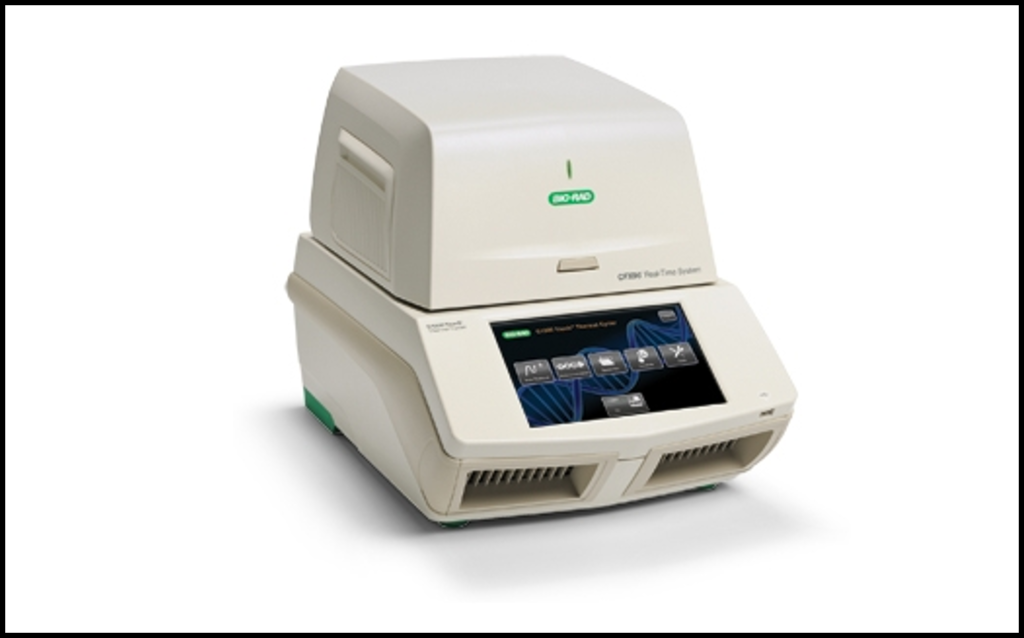
Autoclave
The physical process of disinfection and sterilizing is provided by autoclaves. They combine steam, pressure, and time to operate. Autoclaves use high pressure and temperature to kill spores and germs. They are used to sterilize lab equipment, culture media, and decontaminate specific biological waste. Before disposal, it is advised to autoclave regulated medical waste that may contain bacteria, viruses, and other biological material.
Model: OmniX96
Autoclave Compatible Samples: Tissue Culture Flasks, Surgical Instruments, Glassware, Pipette tips, Media Solutions, Animal food and bedding, Waste, Polypropylene (Secondary containers), Stainless steel, Gloves
Autoclave Incompatible Samples: Acids, bases and organic solvent, Chlorides, sulphates, Seawater, Chlorine, hypochlorite, bleach, non-stainless steel, Polystyrene (PS), Polyethylene (PE), Low density (LDPE) and High-density polyethylene (HDPE), Polyurethane
Charges:
- For IIT-H Users: XXX/- per sample
- For External Academic Institutes: XXX/- per sample
- For Industries: XXX/- per sample

Bacterial Culture Facility
The Bacterial Culture Facility at the eNaRM lab supports researchers by providing bacterial cultures, media, supplies and expertise on a charge basis. The facility is well equipped with laminar flow hoods, incubators and cryopreservation. The Facility provides off-site researchers to undertake experimental planning and execution of related experiments pertaining to their study by on-site personnel.
Equipment Available:
- BSL-II Laminar Flow Hood (FAFS Horizontal Laminar Flow)
- Bacterial incubator (Orbitek® LT-D)
- Centrifuges (REMI NEYA 10 Benchtop Centrifuge)
- 4°C, -20°C, and -80°C storage
Nature of Sample: Staphylococcus aureus, E. coli, sterile biomaterial-based systems
Type of Data/Output:
- Grow and culture S. aureus and E. coli
- Determination of Minimal Inhibitory Concentration
- Antibacterial Assay
- Disc Diffusion Assay, MTT assay
- Expert consultation for researchers regarding bacterial culture needs, media, and experimental design.
Charges:
- For IIT-H Users: XXX/- per sample
- For External Academic Institutes: XXX/- per sample
- For Industries: XXX/- per sample

Probe Sonicator
Ultrasonic homogenizers are suggested for the homogenization and lysis of laboratory material that cannot be treated by traditional grinding or rotor-stator cutting procedures. The converter transforms electrical energy into mechanical vibrations. After being amplified, the vibration moves over the entire length of the probe.
Model: Sonics Vibracell
Nature of Sample: Solids dispersed in an appropriate solvent, Solution of liquids
Type of Data/Output: Preparing Tissues, Disperse Solids, Dissolve Powders, Extract DNA or RNA, Prepare Emulsions, Accelerate Chemical Reactions, Degassing of Liquids, Extract Proteins, Stimulate Bacterial Activity, De-agglomerate Powders, Mixing immiscible liquids, and Emulsify Liposomes
Charges:
- For IIT-H Users: XXX/- per sample
- For External Academic Institutes: XXX/- per sample
- For Industries: XXX/- per sample

Homogenizer
For the few operations that demand submicron particle or drop sizes, a high-pressure homogenizer may be needed. It’s suitable to emulsify, mix, disperse, grind or dissolve immiscible fusions with elements of the same or different phases.
Model: X 1000D Unidrive (Ingenieurbüro CAT M. Zipperer GmbH)
Nature of Sample: Solid/ Liquid/Solution/Dispersion
Type of Data/Output: Mixing of immiscible liquids, Emulsification of solutions, Blending of chemicals, Fractionation of biological samples.
Charges:
- For IIT-H Users: XXX/- per sample
- For External Academic Institutes: XXX/- per sample
- For Industries: XXX/- per sample

Electrospray Setup
It is based on the atomization of the polymer solution. It is used to make micro and nanoparticles in the range of 100nm to 10um by means of the application of high voltage (20kV) to break up the polymer solution into small spherical particles. It also has a camera for visualization and recording of the Taylor cone.
Model: Spraybase® Electrospray Kit
Nature of Sample: Injectable polymeric solution
Type of Data/Output: Nano/micro-scale particles for drug encapsulation, controlled /modified release profile, thin layer deposition.
Charges:
- For IIT-H Users: XXX/- per sample
- For External Academic Institutes: XXX/- per sample
- For Industries: XXX/- per sample

Vacuum oven
It providea an extremely effective means for removing excess moisture from a substance via the combined effects of elevated temperature and reduced pressure. When the pressure around the substance is reduced, increased evaporation will occur at lower temperatures. When drying is performed at higher temperatures, lowering the pressure will enable faster evaporation.
Model: i-Therm AI-7981
Nature of Sample: All kind of solid dispersion in the appropriate liquid/solvent
Charges:
- For IIT-H Users: XXX/- per sample
- For External Academic Institutes: XXX/- per sample
- For Industries: XXX/- per sample

Low-temperature Centrifuge
It is used in various laboratories to separate fluids, gases, or liquids based on density. In research and clinical laboratories, centrifuges are often used for cell, organelle, virus, protein, and nucleic acid purification.
Model: Hermle Z 36 HK centrifuge
Nature of Sample: All kind of solid dispersion in the appropriate liquid/solvent
Charges:
- For IIT-H Users: XXX/- per sample
- For External Academic Institutes: XXX/- per sample
- For Industries: XXX/- per sample

Rotary Evaporator
It is primarily used to remove solvent from a sample through “evaporation under reduced pressure”. The presence of reduced pressure in the apparatus causes the solvent (in the round bottom flask) to boil at a lower temperature than normal. (Note: rotating the round bottom flask increases the liquid’s surface area and thus the rate of evaporation. The solvent vapor travels into the cooler water condenser, where it condenses and drips into a separate receiving flask. This process is how the solvent is removed, therefore leaving a concentrated compound in the original round bottom flask.
Model: Heidolph Hei-Vap Advantage
Nature of Sample: Sample dissolved/dispersed in an appropriate solvent (acetonitrile, diethyl ether, ethanol, ethyl acetate, hexane, methanol, water)
Type of Data/Output: Solvent free concentrated compound/sample.
Charges:
- For IIT-H Users: XXX/- per sample
- For External Academic Institutes: XXX/- per sample
- For Industries: XXX/- per sample

3D Bioprinter
This benchtop system offers a pneumatic-based extrusion system with dual print heads and built-in UV LED curing that allows for quick and easy bioprinting of living tissues.
Model: INKREDIBLE+ by Cell Link
Nature of Sample: Bioinks, Click Chemsitry-based Bioinks, UV-curable Bioinks, Cell-loaded Extrudable Hydrogels
Type of Data/Output: 3D Scaffolds with various design (based on CAD file)
Charges:
- For IIT-H Users: XXX/- per sample
- For External Academic Institutes: XXX/- per sample
- For Industries: XXX/- per sample

- Engineering Nano-medicine for regenerative, preventive and personalized care; Tissue engineering, Novel scaffold system, Interfacial graded tissues (bone-cartilage etc.) Oral health and care, Wound healing, disease theranostics (point of care, diagnostic and therapeutic), Biomolecules (protein, RNA, siRNA) and drug delivery, Stem cell (MSC, iPS) therapy, Understanding nano-bio interface sciences.
Company
Copyright © iith.com Privacy | Integrity @2022 All Right Reserved By 360digit.in
